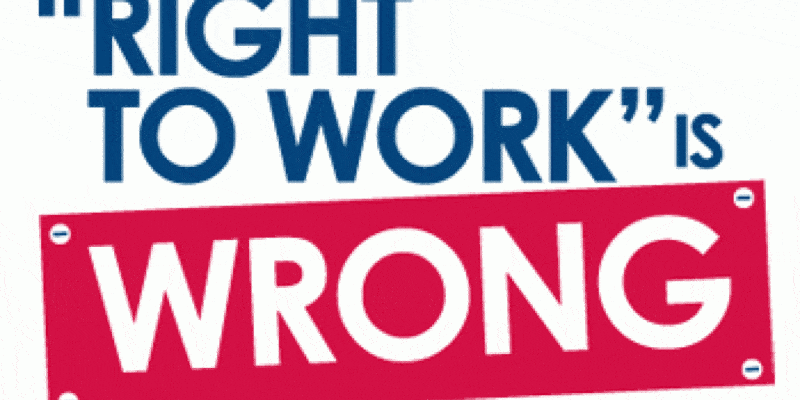By Andy Lyman
March 29, 2019
Supporters of right-to-work legislation in New Mexico were dealt a big blow Wednesday when Gov. Michelle Lujan Grisham signed into law a bill to prohibit counties from passing their own right-to-work laws.
Compulsory union fees in the public sector was struck down by the U.S. Supreme Court in June 2018, but private sector unions can still require workers to pay union fees. It’s against the law for all unions to require workers to pay dues, but they can collect fees to pay for the wage and benefit bargaining.
With the governor’s signature, House Bill 85-sponsored by Democratic Reps. Daymon Ely of Albuquerque and Andrea Romero of Santa Fe-invalidates resolutions passed, over a span of about 14 months in 10 New Mexico counties and one village, that barred union membership as a condition of employment.
Lujan Grisham spokesman Tripp Stelnicki bluntly said state law takes precedence over local government.
“New Mexico is not a so-called ‘right-to-work’ state,” Stelnicki said. “That’s the reality in every county.”
The bill was a direct answer to a push by right-leaning organizations, led by Americans for Prosperity, to localize efforts that failed to pass the Legislature in 2015. That year, with a majority in the House, Republicans passed a bill that would have made it illegal for employers or labor unions to require workers to join a union as part of the job. That bill never made it past the Democratically controlled Senate.
A couple of years after that bill failed, Americans for Prosperity, a politically right-leaning group, began working with county commissions across the state to slowly pass their own right-to-work measures. Sandoval County was the first in the state to pass the law, but was quickly answered by a federal lawsuit from a labor union. The local labor union in that case argued the county did not have the authority to pass such a law and used an advisory letter from New Mexico Attorney General Hector Balderas to back up its claim.

